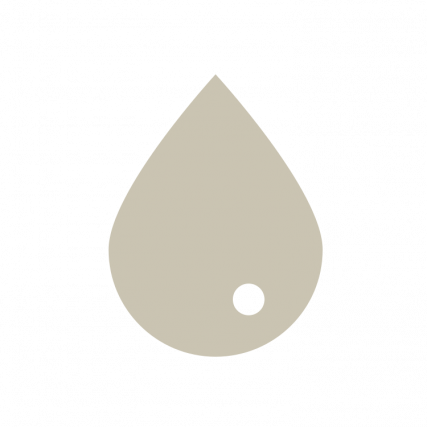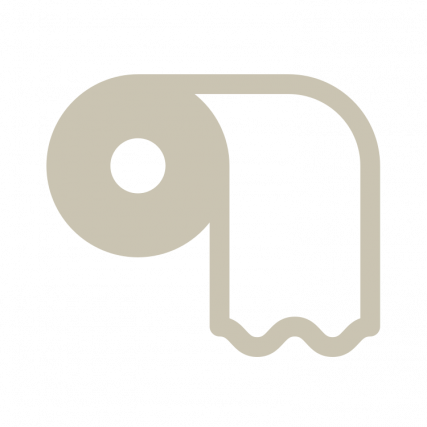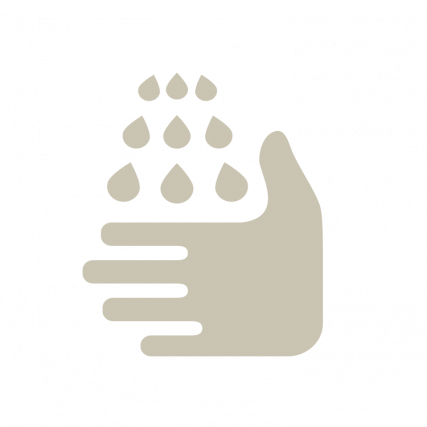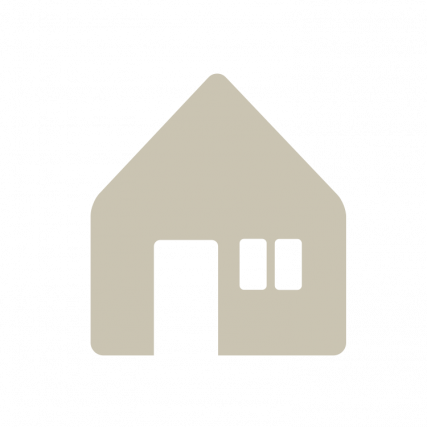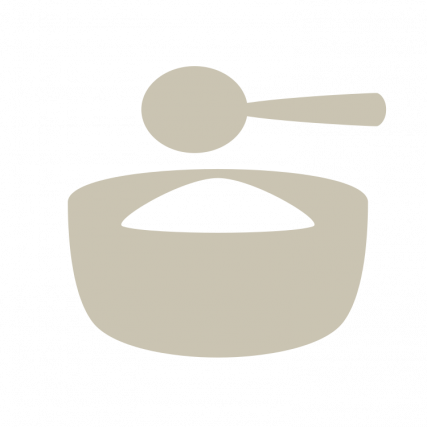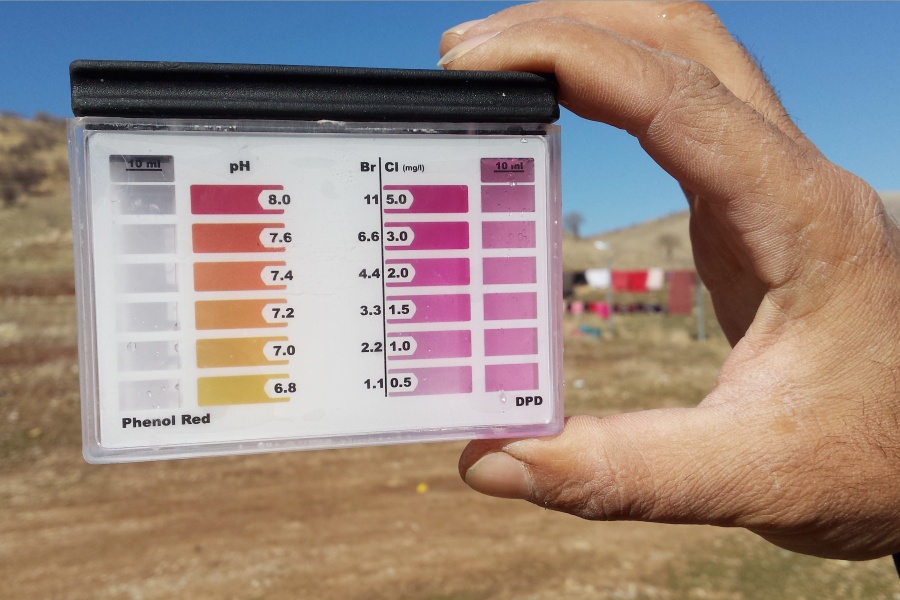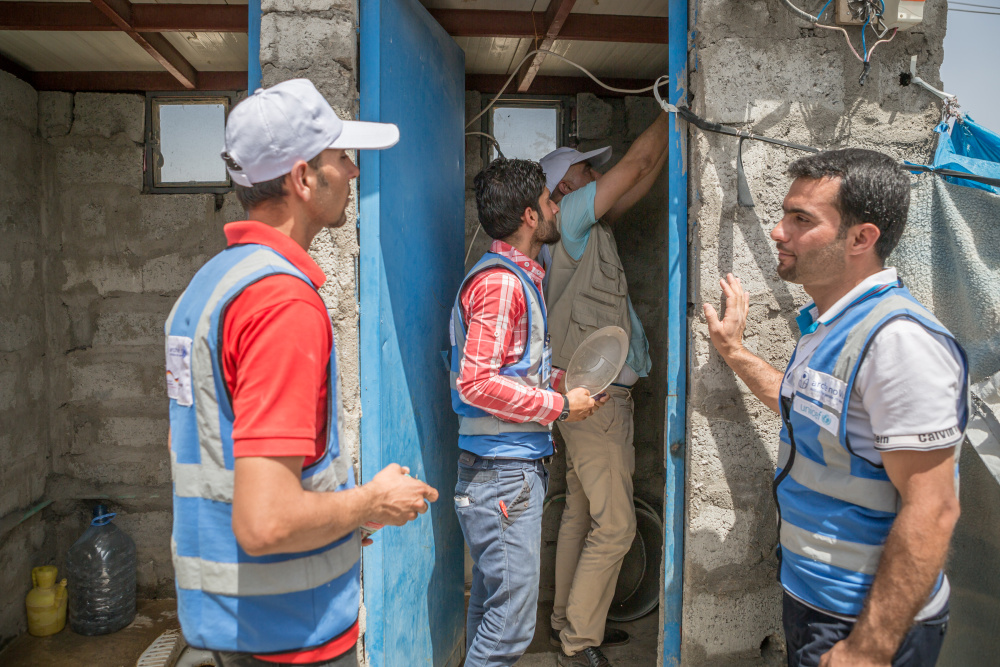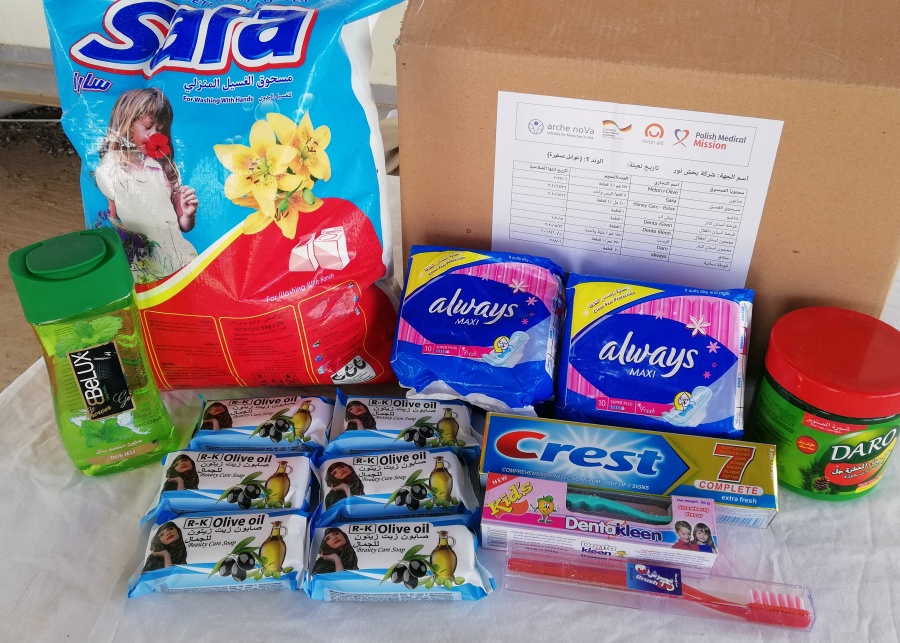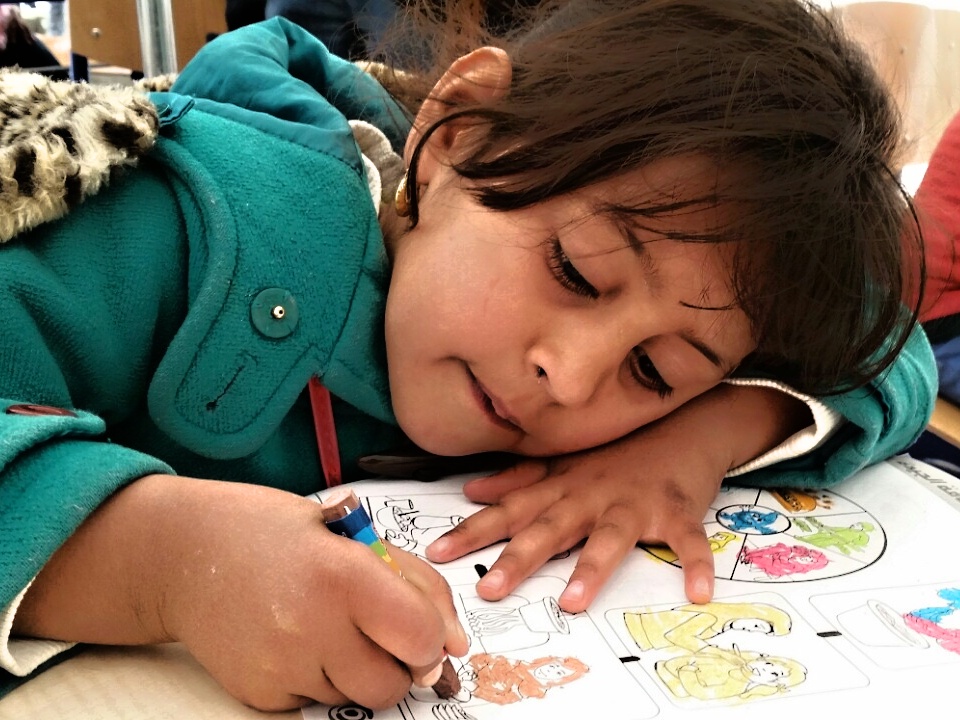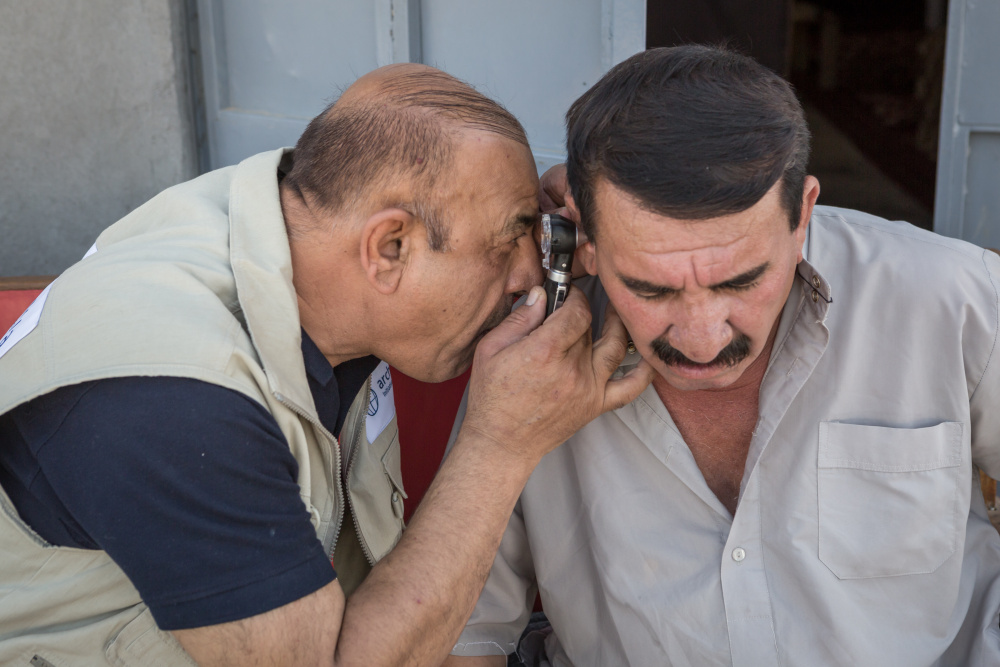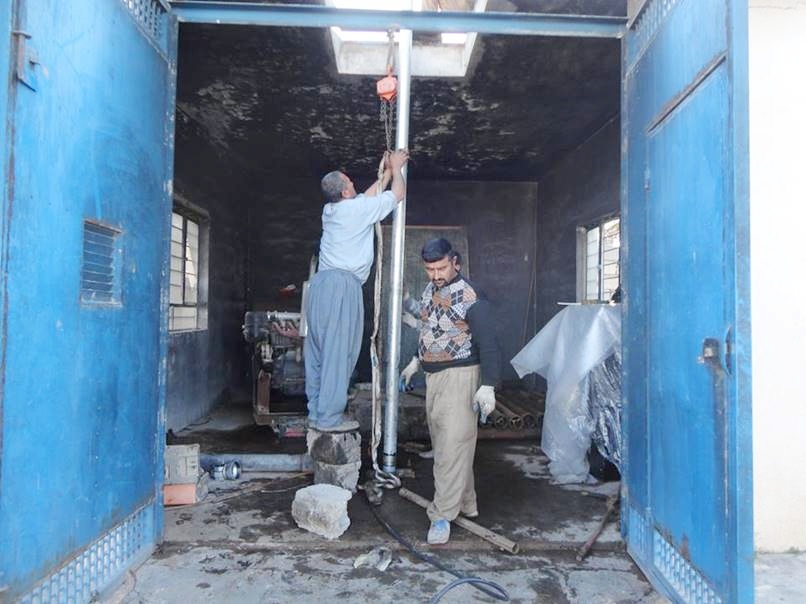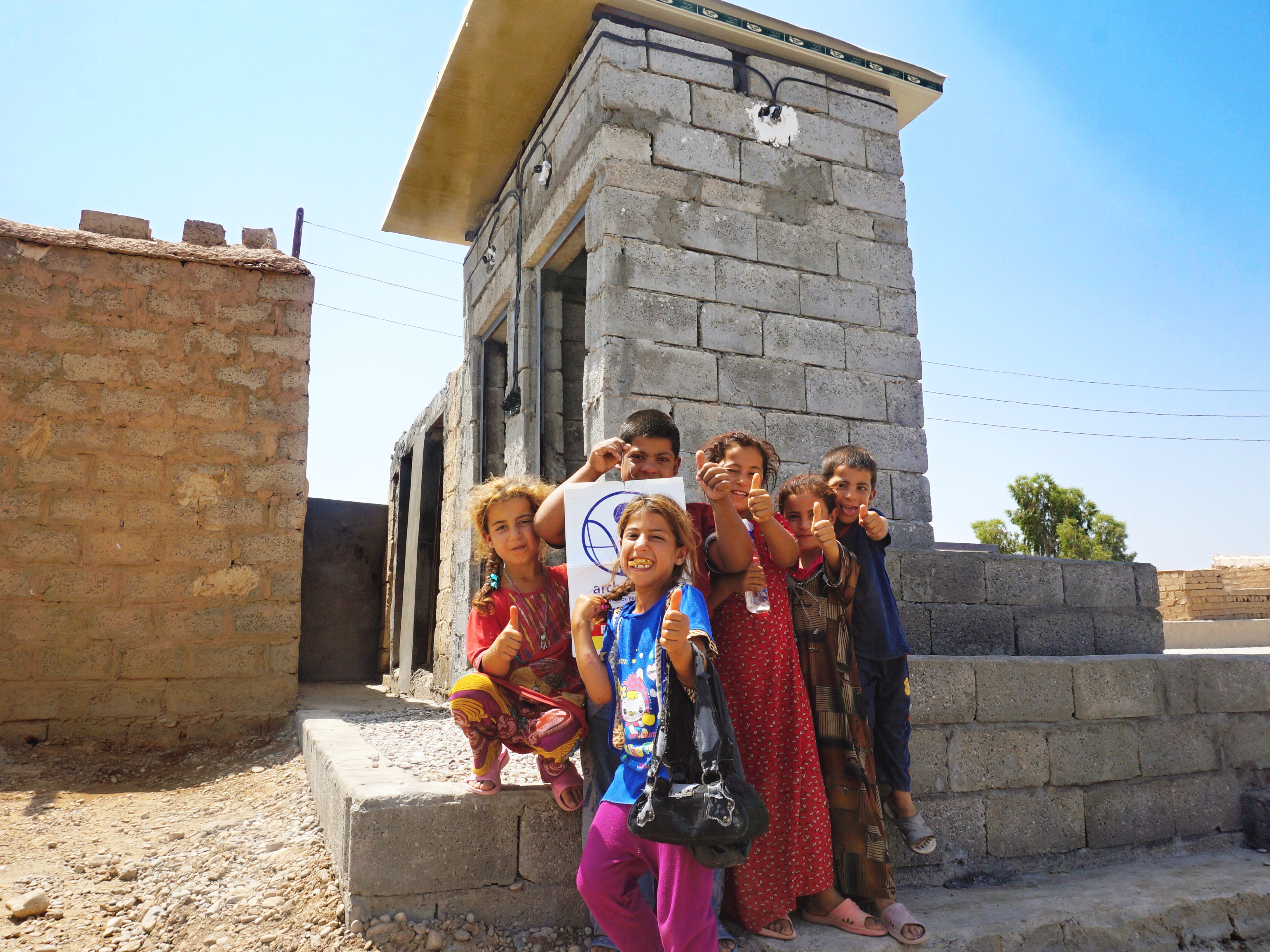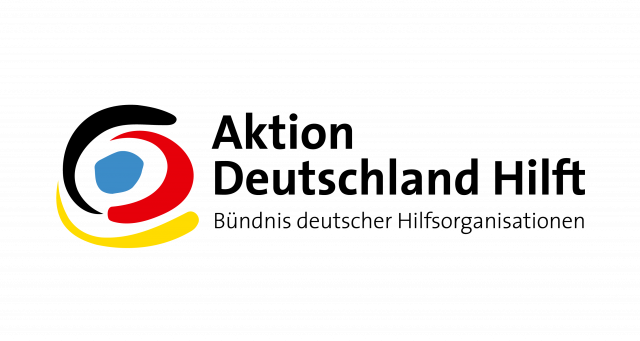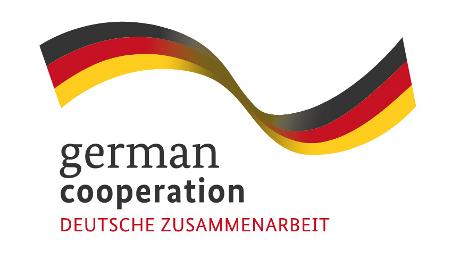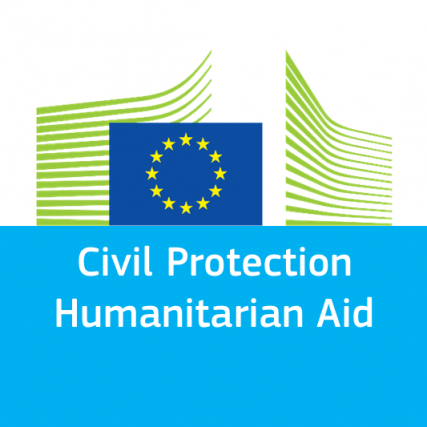Again and again religious and ethnic tensions flare up in Iraq. Added to this is the tense political and economic situation. Nearly four million people continue to be dependent on humanitarian aid, 1.7 million of whom are particularly needy. Most of them are internally displaced persons. Although many people who were affected by the crisis have now returned home, they are now facing difficult economic conditions, insecurity and dilapidated infrastructure. On top of all these problems, the Covid-19 pandemic hit in 2020. This once again threw many of the displaced families off track. Initial surveys show that significantly more people fell below the national poverty line in 2020.
Humanitarian aid in emergency shelters for displaced families
arche noVa has been deployed in Iraq since the outbreak of the fighting of “ISIS" in 2014. What started with a quick distribution of relief goods has become a comprehensive program in refugee camps. For about 10,000 people, access to drinking water and sanitary facilities is ensured and good hygiene practices are promoted.
arche noVas - WASH for IDPs in Iraq
Although the last major population movement took place in 2017, people are still dependent on support in camps. This is also the case in areas of the Kurdish Autonomous Government in Sulaymaniyah, where arche noVa took over the supply of WASH for more camps in 2020. Their inhabitants can rely on the fact that they have daily access to drinking water, that their sanitary facilities are working and that they receive advice and support in hygiene issues. All these activities became even more urgent with the outbreak of Corona infections. arche noVa reacted to the increased need for health care with additional activities, among others the hygiene equipment of a quarantine and isolation station was made possible in one of the camps.
How long people will live in emergency shelters and need support there is uncertain. In many regions, the authorities have begun to close camps. However, as long as people live in the camps where arche noVa works, we will continue our work on site.
Reconstruction is a huge effort
For the foreseeable future, humanitarian aid will be needed in Iraq - including in emergency shelters, where a total of 205,000 people are still housed in 2021. Meanwhile, international donors and the Iraqi government are working to support returning families in their villages and to promote more long-term solutions. But the reality looks sobering in many places. Many refugee families report that it is impossible for them to return to their villages because they would find highly unsafe conditions there.
In the areas freed from the IS, the picture is dominated by extensive destruction of houses and infrastructure and a lack of employment opportunities. The Covid-19 pandemic and the oil price collapse in 2020 have exacerbated the situation, so the impact of these global developments is hitting the most vulnerable populations the hardest. In addition, the security situation remains tense, mainly due to attacks by IS splinter groups. The reconstruction of the infrastructure, the economy and reconciliation within society requires a great deal of time and effort from all parties involved: the people affected, the Iraqi government, the local authorities and the international community.
arche noVa builds water systems and sanitary facilities in villages and schools
The local arche noVa team is preparing for new tasks. In the long term, this also involves an exit strategy for the people in the emergency shelters. arche noVa would like to support the return of families to their homeland or their settlement in other parts of the country. Kirkuk and Northern Diyala have been identified as so-called hot spots for returnees.The needs of the people are our first priority. Our goal is sustainable aid.
This is why, in addition to our activities in emergency shelters, we have also been involved in rural communities for a long time. According to our expertise, we take care of the reconstruction and rehabilitation of municipal water and drainage systems. We work in communities where many refugee families have found refuge. Step by step, we are extending these activities to communities that have been fought over and have since been largely destroyed. The programme includes repairs to water pipes, wells and sewage systems. We are also renewing the drinking water and sanitation systems in schools and health stations. In total, our construction measures will benefit around 45,000 people.
Creating economic perspectives
There are still only limited possibilities for the numerous displaced, marginalized and needy population groups in the rural areas of Iraq to secure their livelihoods. arche noVa supports especially vulnerable households in Kirkuk and Diyala with income generating activities. The aim is to establish agricultural production in greenhouses and sustainable animal husbandry, so that the families can increase and diversify their income. Women-headed households receive special support. As a result of the numerous crises and armed conflicts, they often live at or below subsistence level. In order to secure their nutrition, arche noVa promotes the establishment of kitchen gardens and the cultivation of diverse vegetables. The pivotal point for the effectiveness of all agricultural measures is the water supply. Together with the villagers, our local team therefore works on the reconstruction of irrigation channels for agriculture. In a region where rainfall is scarce and only available seasonally, our project also focuses on efficient water use. This is the focus of various training courses for farmers. They need to prepare for the consequences of climate change and declining water availability.
Further expanding local cooperation
In order to improve local structures in the long term, we cooperate with local water authorities and regional administrations. In order to improve local structures in the long term, we cooperate with local water authorities and regional administrations. Our local team also leads the WASH focal point in Sulaymaniyah and Diyala and the Livelhoods focal point committees in Kirkuk, where agencies and international organizations coordinate on regional water, sanitation and hygiene and livelihoods activities.
A look at the history of arche noVa shows how close the region of Northern Iraq is to our hearts. Iraqi Kurdistan was the target of the first arche noVa mission during the second Iraq war in 1992. It resulted in the foundation of the organisation. Further missions in the region followed: 1994 and 2003 to 2006.
Currently we are able to carry out our activities by participating in two consortium projects supported by UN OCHA and DG ECHO. Furthermore arche noVa finances activities with funds from Aktion Deutschland hilft and the German Federal Ministry for Economic Cooperation and Development.
arche noVas work in Iraq
Donate for this project
Project Overview
- 10,000 people in emergency shelters
- 45,000 people by the rehabilitation of the WASH infrastructure
In the IDP Camps:
- operation and maintenance of water supply
- water quality measurements
- maintenance of sanitary facilities including showers
- cleaning of the sewage system
- emptying of septic tanks
- waste disposal
- Cleaning of quarantine stations
-
Hygiene training and procurement of hygiene material
In rural communities, especially in returnee communities:
- Rehabilitation of a total of 25 water and sanitation systems in communities, 10 health centers and 20 schools in Diyala for about 45,000 people including about 9,200 students and about 3,500 patients per month
- Establishment and support of water committees in 25 communities
- Health and hygiene education in schools including development of cooperation with teachers
- Reconstruction of irrigation canals in Kirkuk and Diyala for 14,000 people
- Growing vegetables in greenhouses with 30 households
- Distribution of sheep and chickens and support for livestock farming for up to 600 households
- Support for vegetable cultivation in allotments for 600 families
- Support for the local water authority in Kalar and Kirkuk
- Senior Project Officer leads the Sub-Emergency Livelihoods Cluster in Kirkuk
- WASH Focal Point leads the sub-WASH cluster in Sulaymaniyah and Diyala
- Polish Humanitarian Action (PAH)
- Solidarités International
- Aktion Deutschland Hilft (Germany's Relief Coalition)
- BMZ
- DG ECHO
- Iraqi Humanitarian Fund (UN OCHA)
- Private donors

